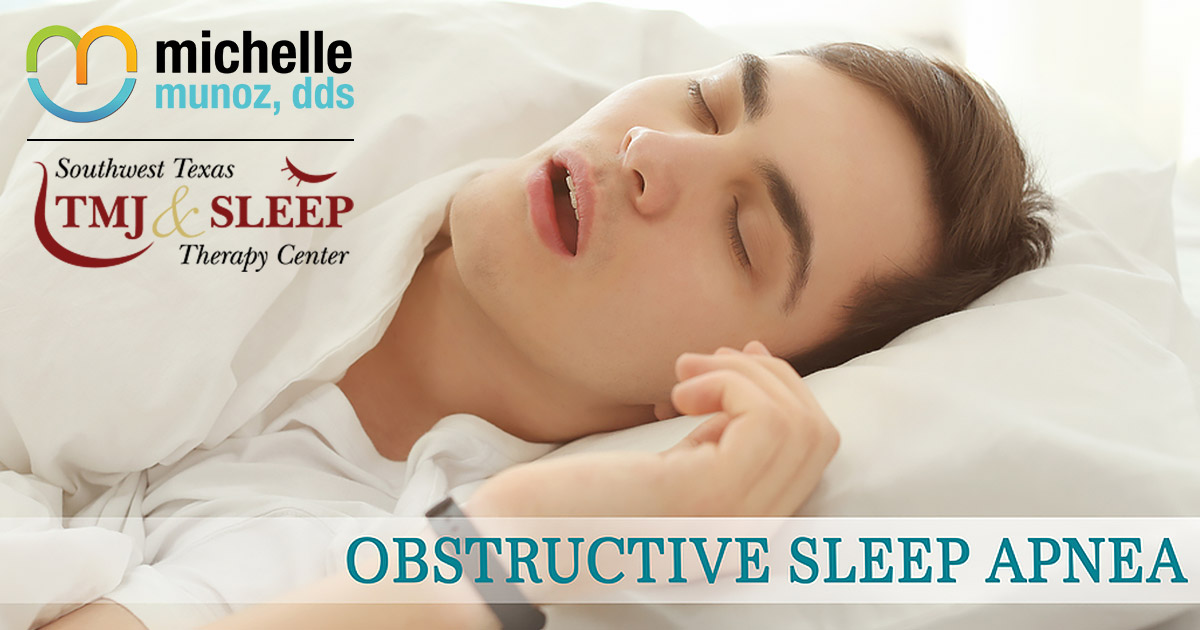The most common type of sleep apnea (obstructive sleep apnea, or OSA) occurs when air can’t flow in and out of your nose or mouth. The result? You stop breathing during sleep. Often this is accompanied by a loud snort as your body gasps for breath, which is the subject of jokes in our culture. At our separate sleep practice, the Southwest Texas TMJ & Sleep Therapy Center, we know that OSA is anything but funny. It is more than an inconvenience — it can be deadly.
Why Is OSA Such a Concern?
It is possible to have OSA and not be aware you have it. The symptoms, such as headaches, mood swings, lethargy, sleepiness, sore throats, and memory issues, can be associated with other problems, making it difficult to recognize. A diagnosis is important, because OSA is treatable. OSA itself won’t kill you, but what results from untreated OSA can. OSA can lead to:
- Increased Risk for Heart Attack or Stroke — Studies show those with OSA are 2-3 times more likely to have a stroke than those who don’t. Some statistics estimate that more than 38,000 die from OSA-related heart disease annually.
- Increased Risk of Premature Death — Research has shown that it is three times more likely that an OSA sufferer will die an earlier death than they would otherwise. In another study, it was found that of those who survived a stroke with OSA, the risk of an early death is increased by 75%.
- Increased Risk of Dying in Sleep — Findings published in the New England Journal of Medicine in 2005 suggest that sudden cardiac arrests are more likely to happen at night for those with OSA, while most others who die of heart attacks do so during the day. The study found the low blood-oxygen levels and high carbon dioxide levels in the bloodstream caused by OSA lead to spikes in blood pressure, stress to the heart walls, and disruptions to the heart’s normal electrical rhythms.
- Other Risks — Sleep apnea has been associated with higher risks for diabetes and dementia, as well as a poorer quality of life, pain, and general dysfunction. Those with sleep apnea are twice as likely to have a driving accident, and a 2009 National Institutes of Health study found that people with untreated sleep disorders often turn to drugs or alcohol as a sleep aid or to function during the day.
Treating OSA Through Dentistry
Here at the Southwest Texas TMJ & Sleep Therapy Center, we recognize the seriousness of sleep apnea. If you’ve been diagnosed, we can help by creating a customized oral appliance that will allow you to get a full night’s sleep. Working together, we can use dentistry to promote your overall well-being and health. If you live in the Uvalde, Texas, area, take the first step and contact us today for an appointment to get started on improving your quality of life!









